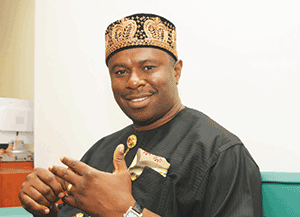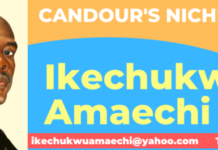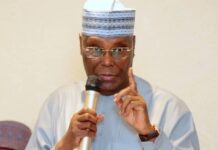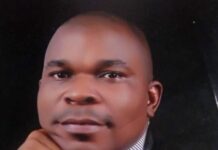By Dakuku Peterside
Plateau state is named Plateau for a reason. It is approximately the Centre of Nigeria and the midpoint between Christian and Muslim civilizations in Nigeria, convergence between settlers and indigenous people, battleground between farmers and herders, and a clash point between indigenous culture and foreign civilisation. For this and other reasons, it occupies a special place in geography classes. Those who journey through the Plateau and its enclave leave the place with great memories of its unique scenery, wild sanctuaries, meandering hills, notable waterfalls, and striking rocks. These landmark features earned her the sobriquet “the home of peace and tourism”. I know about its status as the home of tourism as a fact, but I cannot say so of its peaceful disposition since the advent of the current democratic era in 1999. Peace has eluded the State that I once enjoyed going for a vacations to my late uncle, Gally Brown- Peterside (SAN) home.
Plateau’s internecine conflict is a particularly vicious chapter in Nigeria’s history of ethnic and religious conflicts. The scale of conflict in the State since 1999/2000 represents the most extreme triumph of ethnic tension, religious fundamentalism, and sentimentalism. Plateau is not alone; the entire middle belt of the country has that unenviable record for similar reasons. The past and recent conflict in the Plateau links to three main reasons. The first is agricultural land; the second is the attempt to establish political authority by those referred to as settlers and resistance by the indigenous population; the third reason is religion and particularly the conflict between Hausa-Fulani Muslim jihadist and Christian militancy.
We need a bit of context at this point. To understand the problems in Plateau State, one must go back to history and see how Plateau was once a melting pot for the nation and how it attracted people from all over the world. Indeed, it was a hub for economic activities during the pre- colonial and colonial periods because of mining. Thus, we had people that peacefully dwelt in Plateau State and made it their home. Indeed, the hospitality of the indigenous people of Plateau State is evident in how they accepted and lived with their visiting guests. This openness to visitors explains why many villages and towns in Plateau State which had indigenous names took other names, mainly in Hausa. Examples include Barkin Ladi, Dadin- Kowa, Tudun Wada, Mararaban Jama’a, Gangare, and Maikatako. Gradually, the situation began to take a new turn when those described as “settlers” began to assert and demand political power based on being “Indigenes” because of their extended stay in the State. This action began to awaken the consciousness of the indigenous people who decided to resist such narratives. With the advent of democracy in 1999, politicians exacerbated these arguments to exploit religion and ethnicity to gain public sympathy. Some of them quickly drew the lines of “we (indigenes) versus them( settlers)”. Unfortunately, this narrative built up and created mistrust between people that had lived together for many years, did business, inter- married, and even converted to each other’s faith in some cases.
To worsen this situation, other interests from outside the State, including State forces, compounded the problem by interfering in ways the two segments felt were unfair. For instance, some people saw the creation of the Jos North Local Government by the Babangida regime as a ploy to cede the commercial capital to the “Hausa/Fulani Settlers”, a perception that exists to date and remains strong.
Such passions fuelled the outbreak of violence in 2001, which found fertile grounds in people’s minds and led to the crises that have remained to date. Along the line, criminality took over, and people began to attack their perceived enemies and create segregated communities. Each side of the divide raised its own “militia” to defend their people and interest. Government at federal and state levels did not take decisive stand.
This interregnum compounded with the current “herdsmen and bandits” Challenge rampaging various parts of the country.
The current attacks in the plateau that have raised national red flag follow the same trajectory of attacks and reprisals. This pattern was evident in Bassa, Riyom, Jos North, Barkin Ladi and other places. The real identities of the attackers and sponsors remain unknown despite the plethora of security agencies. On both sides of the divide, the issue is centered around agricultural land and this explains why the situation is elevated during farming season.
The consequence is that as violence recurs, spatial divisions and discrimination highlight social and political divisions; people become more conscious of their sub-national solidarity and allegiances and are more forthcoming about expressing them.
The ongoing ethnic-religious crisis in Jos and other areas in Plateau and the Benue States is another pointer to how divisiveness is widening in the land . It highlights the deepening intolerance amongst Nigerians of diverse religious beliefs and ethnicity. The plateau crisis depicts a country perpetually at a precipice of one form of disaster to the other; a nation that sits on a tinderbox with the subsequent problem just around the corner. The recent events in Jos show that we are now living in a dysfunctional society and ordinary Nigerians’ lives are not worth much.
The ‘Merchants of violence’ in Plateau allegedly fuel this crisis. They include politicians, ethnic and religious leaders who feed on the poverty, illiteracy and most importantly sentiments of their followers to instigate them to violence to achieve popularity, acceptance and economic gains .
The allegation of religious/ethnic cleansing finds credence in the pattern of attacks and perceived attackers. Some critics assume that the attacks by suspected terrorists in Plateau State is religiously motivated and an attempt to wipe out indigenous Christians. Other critics feel there may be a plan by militant Christain groups to wipe out the Fulani/Hausa Muslims because of their religious and ethnic backgrounds. However, the situation is always blown out of proportion and exploited for economic and political gains .
The consequences of renewed killing in the Plateau is glaring for all to see. These crises can potentially spread to other Middle Belt states and might inadvertently become the default model for dealing with farmers/herders, indigenes/ settlers’conflict. It is leading to growing unemployment and consequential poverty which will aggravate the insecurity pervading the area. People live in segregated communities, and residents live in perpetual fear and mistrust, which stalls development. Tourism that hitherto was the main stay of the State’s economy is almost dead because people are afraid of coming into the State despite its beauty and serenity.
There have been failures in the past in tackling this mayhem. The state government has failed to be firm on criminals and ensure punishment for the guilty. This lack of law enforcement led to growing impunity and resort to self- help. There has been poor security architecture and human resources to respond to the attacks and a lack of political will to implement various judicial Panels of enquiry reports. There is a gross inability to rein hate preachers and other ethnic bigots spreading hatred in a community with pervasive poverty, drug abuse and religious bigotry. Many locals have accused the federal government in charge of security agencies of failing to secure the lives and property of the people. Some accuse the security agents of complicity in the conflict .
The unending crisis in Jos North LGA and plateau state is an offshoot of the ‘indigene/ settlers principle’problem. This archaic concept, which has largely disappeared in many modern societies, means that some indigenous groups control power and resources in a particular place like a state or local government while excluding migrants. This kind of situation naturally gives rise to protests, unhealthy rivalry, and competition for political space, resulting in acrimony and violence. The crisis requires both local and national solutions. We should take a second look at our constitutional provisions regarding the concept of ‘indigene’. This term is ambiguous. We can replace it with ‘residency’, whereby living in a particular place for a specific period automatically confers absolute residency rights to an individual, as it is obtainable in most modern societies.
Nigerian history is replete with indigene-settler conflicts. However, the country is currently experiencing widespread intercommunal strife in a way that has never been seen before in our chequered history. Ethnic champions and religious extremists have stolen the limelight and are currently in control of the conversation. These divisions are predominant in the North Central Geopolitical zone of the country as it is home to several minority groups and no religion is dominant. It is a region that serves as a bridge between the mainly Muslim northern section of the country and the majority Christian south.
The Jos crisis mirrors the situation in the country. The area is a microcosm of today’s Nigeria, where mutual distrust fuelled by ethnic jingoism and religious bigotry lay bare our sectional fault lines. It seems that no value is placed on human life anywhere in the country at the moment, and we have become a nation beyond shock.
All levels of governments must rise to their responsibilities in times of crisis. Incendiary speeches are the last thing we need from religious and political leaders. ‘Politically correct’ public speeches are not enough. Tangible political action against instigators and perpetrators of violence and wanton killings is needed. There are no records of subsequent prosecution in rare cases where we see pictures of people arrested for instigating or perpetrating violence. This anomaly gives room for impunity, which continues to feed the violence.
The Plateau State governor, Simon Lalong, from conversations I had with people in Jos seems to have been deft and proactive in handling the tension in the state. Starting from running an inclusive government to continuous engagement with all stakeholders. The government under Lalong has established a peace building agency , a standing inter-religious council, and other institutions to facilitate peace. An early warning system established with the support of France and USA is in place.The state government has given massive support to security agencies with a Commissioner of Police, CP Edward Egbuka that has shown courage and leadership. A good number of legislative frameworks have also been put in place such as the law on land grabbing, anti-kidnapping law, bill on ranching amongst others. While some Stakeholders accuses him of serving only indigenous communities, another more vocal section depicts him as if he is in cahoots with the so-called ‘Fulani Oligarchy’. His support for the Anti-Open Grazing Law passed by the state House of Assembly is interpreted by some as a sign of hostility towards the Fulani people. On a final note, Plateau state is strategic in our national cohesion. It is a melting pot of ethnic, religious, political, economic and cultural forces at play in the nation. To that extent, the management of the frequent crises and eruptions in the state require the full deployment of the instruments of the federal and state powers.
First is a requirement of economic amelioration through negotiating the farmer/herder relations through inter ethnic conciliation.
Second is the establishment of an inter faith mechanism for early resolution of frictions.
Third would be the stationing of security and law enforcement units along the critical flash points.
The state government needs to adopt better diversity management strategies to reassure all residents of their safety irrespective of ethnicity, faith or origination. We hope to see a return to a plateau that is home of peace .













